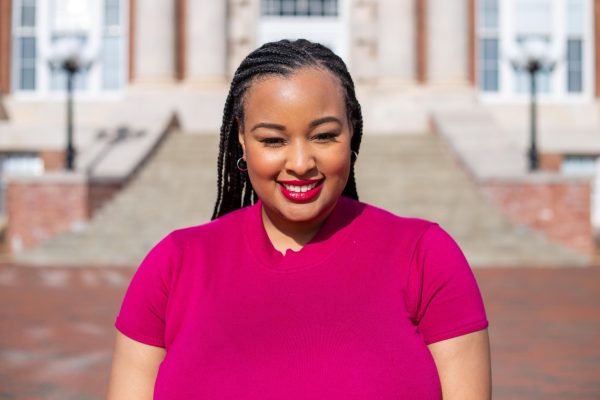Mississippi State University had a ribbon-cutting ceremony at 2 p.m. on Oct. 29 to celebrate the new renovations and lab spaces in Butler Hall. MSU President Mark Keenum was present to cut the ribbon and was given a tour of the building to see the renovations inside the home of the Computer Science and Engineering Department.
Shahram Rahimi, head of the Computer Science and Engineering Department, said the main issue with the old building was the lack of space. For 35 years, Rahimi said the department has been trying to expand the space of Butler Hall. After meeting with Keenum, Rahimi said the renovations could start after a long and tedious effort.
“We got the chance to meet with Dr. Keenum and invite him here and made a plan for him to see the stuff that we wanted him to see,” Rahimi said, “and then he spent a couple of hours here when he was leaving, he promised us to help us financially to do these things.”
The building underwent a complete renovation over a two-year period, costing approximately $5 million, with $4 million funded from the university and $1 million from the department. The renovations were completed during the COVID-19 pandemic, and additional structures like the tutoring center and research labs were built later.
Rahimi said everything was renovated in the building, including air conditioning systems, the windows, flooring and painting on the walls and purchasing new furniture. Despite these key renovations, Rahimi said there still is a lack of space in Butler Hall for students and faculty.
“We have four faculty members that are sharing offices now because we don’t have enough office space,” Rahimi said. “Also, the labs that you saw, some of them are just too packed. There’s not enough space to do stuff, so definitely, lack of space is a major issue for us. We are, now, over 1,000 students. We have nine majors, and all of these require space.”
He also explained how students see the positive impact of renovations.
“You see more students coming and hanging out in the building,” Rahimi said, “They have places to hang out. They have places to collaborate. These labs include undergraduate and graduate students to perform research. So those are places for their hands-on experience that they gain outside of the classroom or part of the classroom. So, it has been a major difference for our students, feeling that they have a home, so they have a place to hang out and connect down there.”
Adam Jones, an assistant professor in the computer science engineering department, said the renovations and labs are phenomenal. Jones said it provides an excellent workspace for students to work on projects and for the faculty to push their research initiatives.
“I’m fortunate to have the space that I have here as well,” Jones said. “It’s where we do our virtual reality experiments, and we’ve got space to do motion tracking, and all sorts of other human computer interaction research.”
Jones further explained why these new adjustments are impactful for students.
“For undergraduates, the classrooms are cutting edge. They’re beautiful,” Jones said. “The teachers can do in-person and remote lectures very easily. There are lounge areas for students to get together and study, and also meeting rooms available throughout the building. So, for undergraduates, it is very helpful. For the graduate students, most of those guys live in labs, and the lab spaces are much nicer and much more spacious than they used to be. So, you can come, and you can work in peace and quiet, or not if you need to work with your colleagues, so it’s a very collaborative space.”
Some students seem to agree that the added space is helpful. Wilson Patterson, a cybersecurity operations major and first-year graduate student from Huntsville, Alabama, said it seems a lot of good work has been put into renovations, and it is nice to have updated furniture.
“I work in a lab upstairs,” Patterson said. “It’s nice to have working air conditioners and nice chairs to sit in. Butler is more of a hang out now since there are more places to collaborate.”
Overall, Rahimi said he is grateful for the expansion of his department.
“We are so thankful for the space we have,” Rahimi said. “Our students are happy. The faculty are happy. When you have a better space, you can recruit better faculty, and you can recruit better students that are added to our numbers. It’s not just the numbers, and how many, but also the quality of students and faculty and courses that they can offer.”













